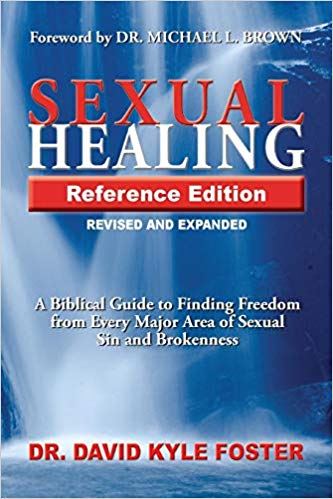What Is Intimacy with God and How Do I Pursue It?

Did you know that the purpose of life is to pursue and live in an intimate relationship with God? Salvation is our rescue from the sentence of death because of sin, but intimacy with God is to define our life with Him.
Yet, when we consider pursuing intimacy with God, our human nature allows for misconceptions and hesitation.
How do I prepare for greater intimacy with God?
Each person’s experience of intimacy with God is unique. In my years of pursuing Him, there have been words of love released into my heart—dreams, visions, and revelations of His power, glory, and love.
He has given me secret insights that unlock the roots of my besetting sins while illuminating and empowering the way of escape. He has given me warnings and encouragements; healing and transformation; deeper understanding of His Word; and so much more.
“Those who wait for the Lord will gain new strength; they will mount up with wings like eagles, they will run and not get tired, they will walk and not become weary.” (Isaiah 40:31)
Although minor details vary, these fundamentals apply:
1. Admit genuine repentance.
This is fundamental to beginning a relationship with Jesus Christ, (Matthew 4:17; Luke 13:3; Acts 2:21, 4:12; Romans 6:23, 10:9), but it needs to be characterized by genuine, heartfelt sorrow over sin and serious and ongoing attempts to turn away from it (2 Corinthians 7:10).
2. Truly desire the appropriation of God’s power.
Many people aren’t aware that God wants to impart the power to resist sin. However, we need to maintain a genuine desire to both receive and use it once given. This is a “transformation of the will” that can only be achieved through a revelation of God’s grace and love (Titus 2:11-14; Philippians 2:13, 4:13; Galatians 2:20; Romans 2:4, 5:17, 8:5, 28; 2 Corinthians 1:21, 5:14; 1 Thessalonians 4:3).
3. Discern if love is your motivation.
The thing that motivates you to obey God is vital. If it is love that compels you (2 Corinthians 5:14-15; Romans 2:4, 16:20; John 14:23; 1 John 5:3-4), then the power of God will manifest in your life to keep you from falling (Jude 24; Romans 6:15-18; 2 Corinthians 10:3-5; 1 Peter 1:13-16; 2 John 6).
4. Renew and govern your mind.
It is not just God “keeping us from falling” (assuming we have faith in His promise to do so). We must also do our part by following His instructions (James 4:7-10). The Christian walk is a partnership—God doing His part and you and I doing ours (Romans 8:5, 12:1-2; Galatians 6:7-9; Ephesians 4:22-24; Philippians 4:7-8; Colossians 3:1-10; 1 Peter 1:13-16).
5. Reckon yourself dead to sin.
To “reckon” means to accept as a fact for yourself and in your own experience. The Bible tells us that sin shall not be our master (Romans 6:8-14). If that weren’t possible, then God would never have said it! Our task is to find out and appropriate how that is possible.
6. Live by the Spirit.
Galatians 5:16-18 tells us that if we live by the Spirit, we will not gratify the desires of the flesh. 2 Peter 1:3-10 tells us that as believers, God’s divine power has already given us everything we need for godliness (see also Romans 8:4-15). Our tendency, even when we know better, is to take the reins from God and try to achieve holiness in our own strength (Galatians 3:1-5).
What are the common misconceptions about intimacy with God?
Misconception #1: Intimacy is akin to sex.
First, in a world that regularly defines “intimacy” as something sexual, it is a difficult concept to fathom when it comes to God. God is spirit, however, so there is nothing sexual about having an intimate relationship with Him. Isn’t it just like the evil one to take a word that describes something so vital and confuse us into discomfort about how it relates to our pursuit of God?
Misconception #2: Intimacy should be easy.
Intimacy with God does take a lot of effort. Many believers won’t take the time that it requires. After all, He might demand too much of their attention or might ask them to do something they don’t want to do.
They’ve got their ticket to heaven but want to keep their day-to-day life separate from God. Pursuing Him compromises their autonomy. Blinded by their own selfish independence, they don’t know what they’re missing.
Misconception #3: Intimacy shouldn’t involve waiting.
We’ve been groomed by the media to expect quick results from little effort. We unconsciously put a stopwatch on God and His promises and when He doesn’t live up to our expectations, we move on to something else. The concept of “waiting on the Lord” has become an anachronism.
Misconception #4: Intimacy with God is only for ‘special’ people.
Many people assume that being intimate with God is a special call—that the average person can’t go there because they’ve been compromised by their lackluster or sinful Christian life.
It is a trick of the enemy to keep them from the solution to their sin. It is a diversion from knowing the glories of eternal life, which began when they gave their life to Jesus Christ, who said to the Father:
“This is eternal life: that they may know You, the only true God, and Jesus Christ, whom You have sent.” (John 17:3)
Misconception #5: It’s too hard to figure out 'how' to get intimate with God.
Although many talk glowingly about having an intimate relationship with God, few describe how to get there. Some of my favorite authors describe the glories found in His presence—writers like A.W. Tozer (The Pursuit of God and The Knowledge of the Holy), Mike Bickle (Passion for Jesus), Henry Blackaby (Experiencing God), and many others.
But few outline the path to intimacy. In my book, Transformed Into His Image: Hidden Steps on the Journey to Christlikeness, I try to explain how intimacy with God is the indispensable foundation for being made holy.
What are practical steps to greater and ongoing intimacy with God?
When God rescued me from a life of great sin, I was left alone to find my way. I didn’t trust Christians and didn’t have a good Bible-believing church to guide me through temptations that easily beset me (Hebrews 12:1-3).
So initially, it was just me and God. Which was a good thing, because I was forced to seek Him diligently and with all my heart (Hebrews 11:6; Jeremiah 29:11-14). In total reliance on the leading of the Holy Spirit, here’s what I learned about developing intimacy with Him:
1. Decide to obey no matter what the cost or how difficult the journey.
- Forsake the things of the world (John 14:15)
- Believe in His goodness and obey Him even when there is no evidence
- Embrace that he who loses his life for Jesus’ sake will find it (Matthew 10:39)
2. Immerse yourself in the Word.
Follow the lead of Jesus and believe every word He says (John 5:30, 10:30; 15:10; 17).
3. Spend copious time pursuing God (Hebrews 7:19).
- Be brutally honest with God
- Ask the hard questions
- Wait on Him
- Do everything He tells you to do (Luke 22:42)
- Learn to believe in His grace, love and transforming power (2 Corinthians 3:18)
4. Immerse yourself in intimate worship of God.
- Sing love songs to God, rather than songs about God
- Avoid the false god of Christian “entertainment,” where your flesh is stimulated rather than knit to God
5. Find and dive into the life of a church that believes the Word and operates in the Spirit (Ephesians 5:15-21).
- Regularly attend home fellowship and support groups
- Spend copious time receiving prayer at the altar
- Learn to imitate seasoned believers who have overcome (1 Corinthians 4:15-16; 1 Thessalonians 1:6; Hebrews 6:12, 13:7)
6. Seek direct healing from the Father and the impartation of the missing pieces of your childhood.
God will surprise you with badly needed revelation while you are in the midst of seeking Him. If you ask Him for it, He will supernaturally impart vital things, such as: a sense of well-being; a knowledge of being loved, lovable, worthwhile and valuable; a knowledge of the goodness and rightness of His having made you male or female; a certainty that you are wanted, and that you have a Father in heaven who adores you.
7. Minister to others.
Learn how to serve and to how to love (1 John 4:10; John 14:15).
8. Refuse to be discouraged by ‘wilderness periods.’
Temptations and troubles can sometimes cause us to believe that God has abandoned us. They test and temper our faith (2 Corinthians 4:16-18).
But God will never allow us to be tempted beyond what we can withstand (1 Corinthians 10:13; Hebrews 2:18) and He will never abandon or forsake us (Hebrews 13:5).
Wilderness periods where God seems to have disappeared from our lives can also be periods where He is teaching us to seek Him not for the consolations that He gives, but for Him alone. However, He is never as close to us as when He seems to have vanished. We need to build ourselves up in this holy faith during such wilderness periods (Jude 20).
God has given us an amazing promise: that if we seek Him with all our heart, He will reveal Himself to us (Jeremiah 29:13-14).
Often, someone who is dying will express deep regret that they did not spend more time with their family. As their life comes to an end, they lament over discovering (too late) that life was to be found in intimacy with those they loved—that in fact, all the money, possessions and career successes were worthless in comparison. Don’t let that happen to you!
Friends, intimacy with God and others is the intended purpose of life, both here and in heaven. It may require time and effort but will prove itself in a transformed life and the intense joy of experiencing God’s presence.
How can we neglect so great a salvation (Hebrews 2:3)?

Photo Credit: GettyImages/kieferpix
Originally published May 10, 2019.




